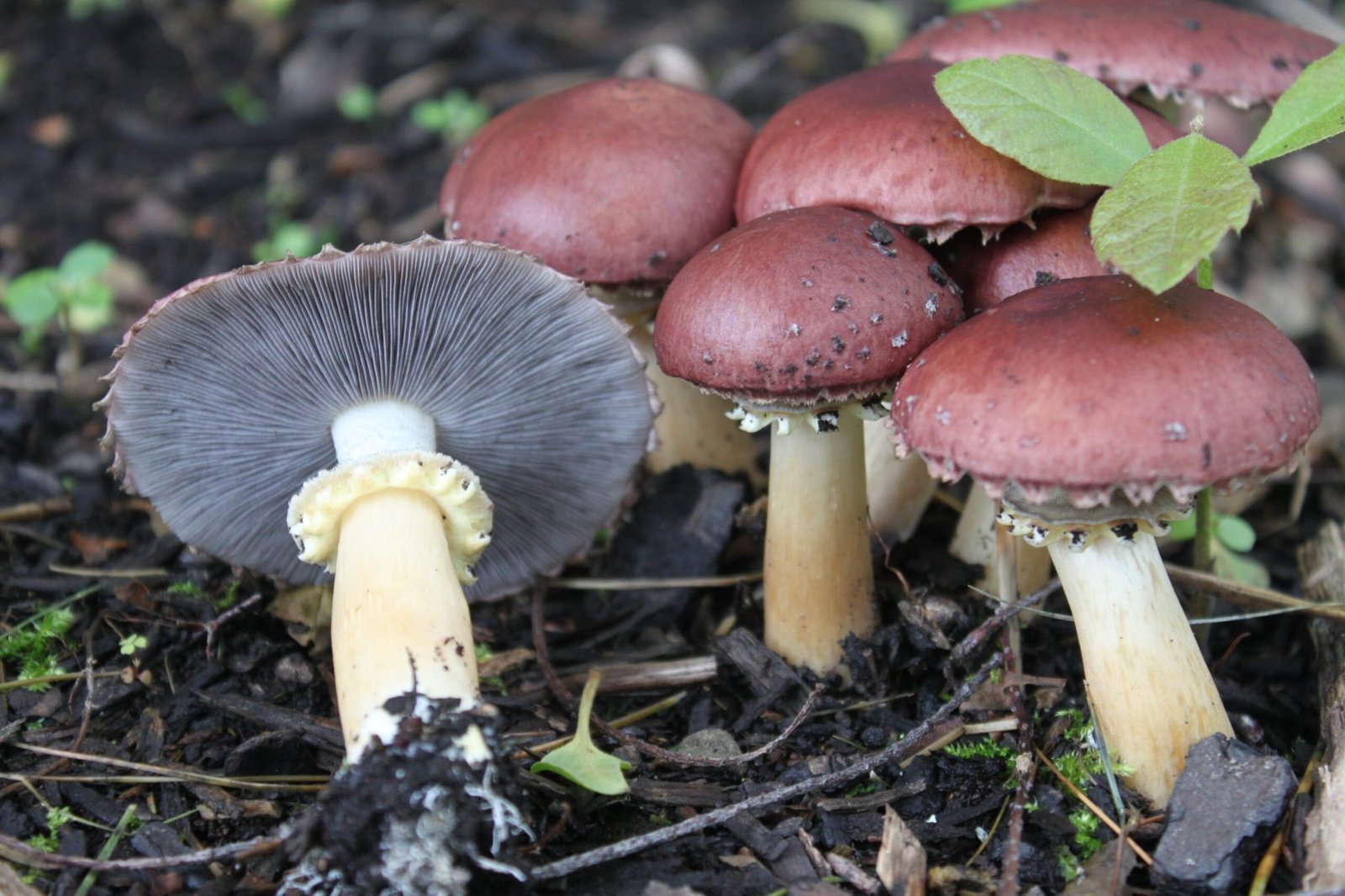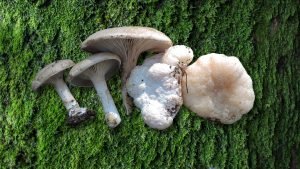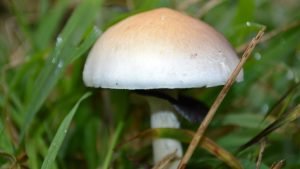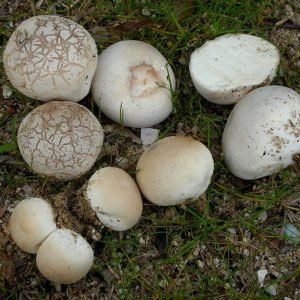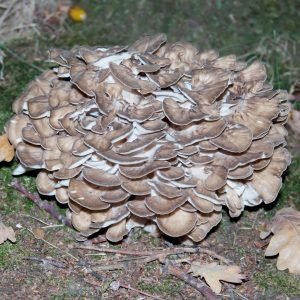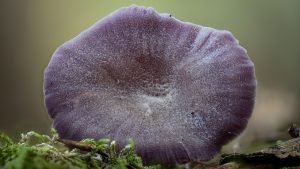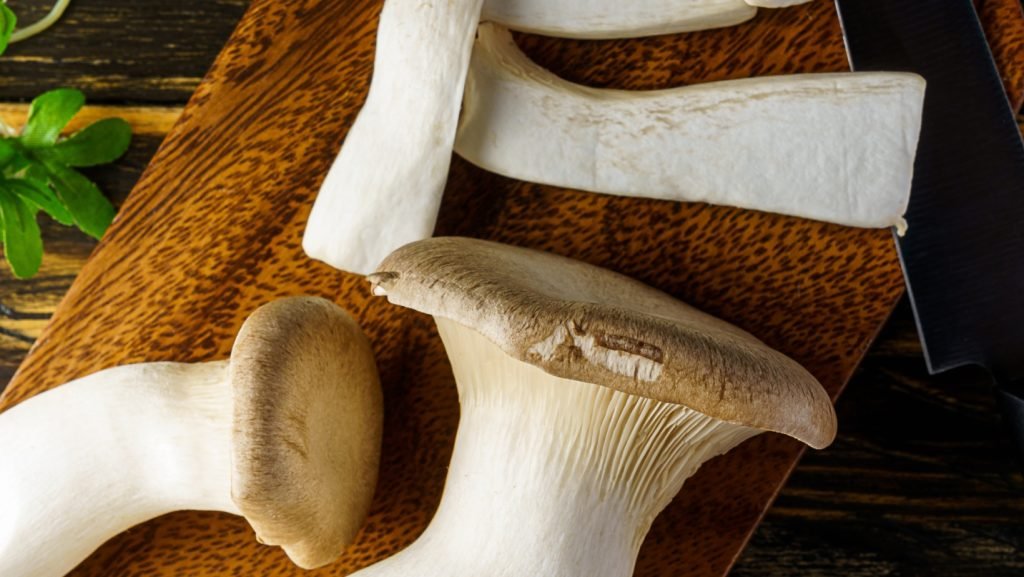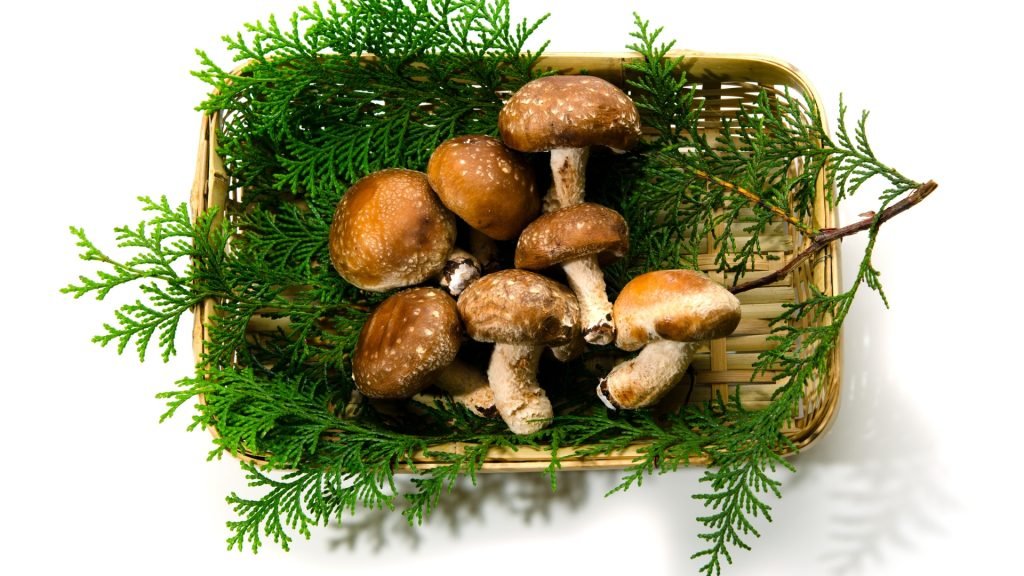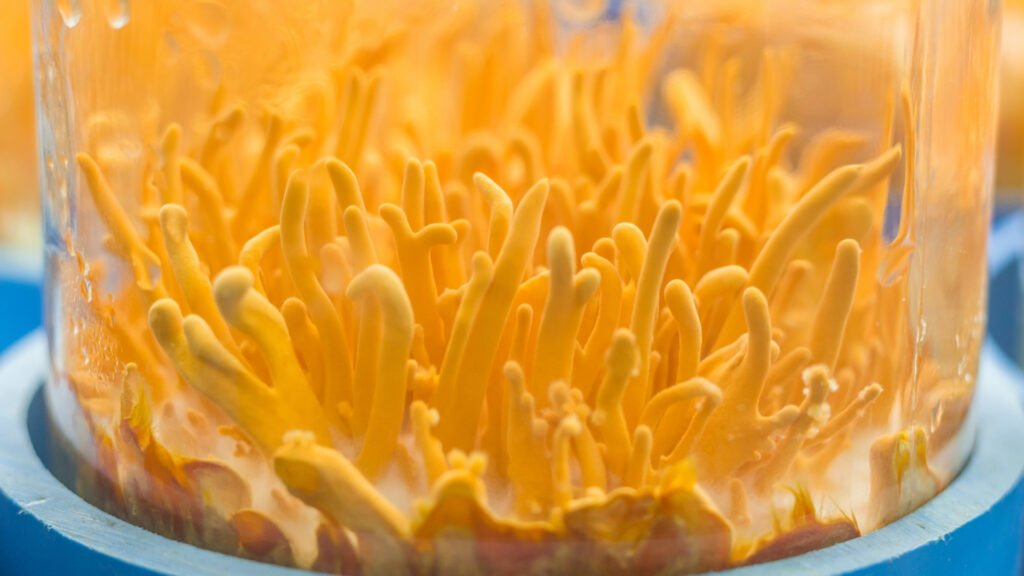Scientific Name:
Stropharia Rugosoannulata
COMMON NAME(S):
Wine Cap | Garden Giant | Burgundy Cap | King Stropharia

The Wine Cap mushroom, also known as the “Garden Giant,” is a popular edible mushroom that is easy to cultivate and has a delicious nutty flavor. In this post, we will explore the physical characteristics, habitat, historical and cultural significance, chemical composition, health benefits, cautions and warnings associated with this mushroom.
Description:
The Wine Cap mushroom is a large, fleshy mushroom that can grow up to 12 inches in diameter. Its cap is initially convex and then flattens with age, often developing a central depression. The cap is typically reddish-brown in color and has a dry, slightly scaly texture. The stem is thick and fibrous, often with a ring around the top, and has a reddish-brown color with white patches. The gills are close together, initially light pink in color, and then mature to a dark chocolate-brown color. The Wine Cap mushroom is commonly found in gardens, compost piles, and other organic-rich habitats.

Historical & Cultural Info:
The Wine Cap mushroom has been used for centuries in traditional Chinese medicine for its anti-inflammatory and anti-tumor properties. In Japan, it is known as the “King Stropharia” and is highly regarded for its medicinal and nutritional benefits. In North America, the Wine Cap mushroom was introduced as an edible mushroom in the 1970s and has since become a popular choice among mushroom enthusiasts.
No posts found!
Chemical Composition:
The Wine Cap mushroom contains polysaccharides, triterpenoids, and ergosterol. Polysaccharides are believed to have immune-boosting properties, triterpenoids have anti-inflammatory properties, and ergosterol is a precursor to vitamin D. It also contains ergothioneine, a powerful antioxidant that has been shown to protect against oxidative damage.
Health Benefits:
The Wine Cap mushroom has several potential health benefits. It is rich in dietary fiber, vitamins B and D, and minerals such as potassium, calcium, and iron. Studies have shown that the mushroom’s anti-inflammatory and immune-modulating properties may help to reduce inflammation and improve immune function. Additionally, the antioxidant properties of ergothioneine may help to protect against oxidative stress and age-related diseases.

Cautions & Warnings:
While the Wine Cap mushroom is generally safe to consume, some people may experience allergic reactions. It is important to consult a doctor before consuming any mushrooms, especially if you have a pre-existing medical condition or are taking medication.
Final Considerations…
The Wine Cap mushroom is a delicious and easy-to-grow mushroom that has a nutty flavor and meaty texture. It is a great addition to soups, stews, and stir-fries and can also be grilled or roasted. At the 🍄 Mushroom Network, we offer Wine Cap mushroom spawn for those interested in growing this delicious mushroom at home.
No posts found!
No posts found!
View More Species:
Shrimp of the Woods (Entoloma Abortivum)
Welcome, mycophiles and curious minds, to a fascinating exploration of the Entoloma Abortivum – a...
Read More...Psilocybe Cubensis (PC-Strain)
Welcome to the fascinating world of Psilocybe Cubensis, a mushroom species celebrated by mycologists and...
Read More...Mini-Puffball (Bovista Dermoxantha)
Scientific Name: Bovista Dermoxantha COMMON NAME(S): Mini-Puffball | Small Puffball | Little Puffball Welcome to...
Read More...Black Reishi (Ganoderma Sinense)
Scientific Name: Ganoderma Sinense COMMON NAME(S): Black Reishi | Black Lingzhi |Black Lucid Ganoderma |...
Read More...Recommended Reads:
Hen of the Woods (Grifola Frondosa)
Scientific Name: Grifola Frondosa COMMON NAME(S): Hen of the Woods | Maitake The Hen of...
Read More...Amethyst Deceiver (Laccaria Amethystina)
Welcome, fungi enthusiasts and scholars! Step into the enchanting world of Laccaria Amethystina, a mushroom...
Read More...Wheat TEK for Mycology: A Comprehensive Guide
Delve deep into the fascinating world of mycology, where the age-old grain, Wheat, takes center...
Read More...Antler Reishi: Understanding Its Genes
The world of mycology is a fascinating and ever-expanding domain, with countless mushroom species captivating...
Read More...
